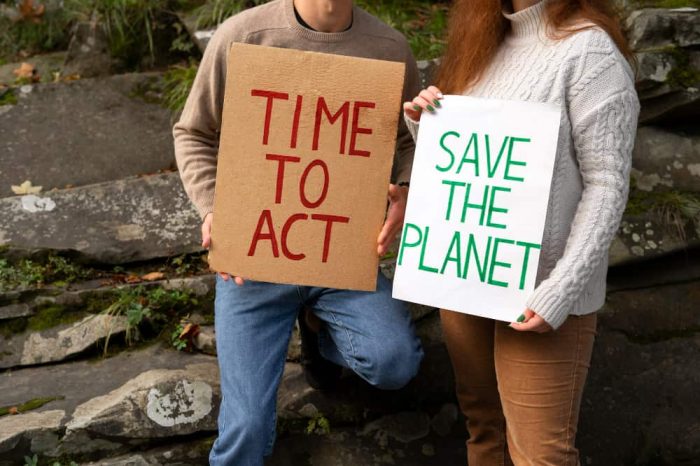Environment regulation
Environmental regulation refers to the set of laws and policies designed to protect the environment and natural resources. These regulations cover a wide range of issues, including pollution control, waste management, climate change, and biodiversity conservation. International law plays a critical role in regulating environmental issues, as many environmental problems are global in scope and require cooperation and coordination among countries. Treaties such as the Paris Agreement and the Convention on Biological Diversity provide a framework for international cooperation on environmental issues. International organizations such as the United Nations Environment Programme and the International Union for Conservation of Nature also work to promote environmental protection and sustainable development. However, environmental regulation can be challenging to enforce, and there are often conflicts between economic interests and environmental protection. The effectiveness of environmental regulation also depends on the political will and resources available for implementation and enforcement.
Find best lawyers for Environment regulation
Issues related to Environment regulation
What is environment regulation?
The purpose of environmental regulation is to protect the environment from harm. Regulations can be implemented for various reasons, including protecting air quality, water quality, and habitats. Regulators typically use various methods to protect the environment, including setting emissions standards, establishing permitting processes, and creating enforcement mechanisms. One common misconception about environmental regulation is that it hurts the economy. However, numerous studies have shown that environmental regulation boosts the economy by creating new jobs in green technologies and reducing healthcare costs. In addition, many businesses support environmental regulation because it creates a level playing field and ensures that all companies are held to the same high standards. Businesses must adhere to several environmental regulations, depending on the industry and location. Federal regulations include air quality, water quality, and hazardous waste disposal. States may also have their unique regulations, as well as industry-specific regulations. Therefore, businesses must become familiar with the applicable environmental regulations and develop a plan for meeting them. Failing to comply with environmental regulations can result in fines or even criminal penalties, damage a company’s reputation and lead to lost business. Ensuring that an international business respects environmental regulations can be tricky and complex. The first step is ensuring that your company has a comprehensive environmental policy, which includes guidelines for complying with relevant regulations when operating in other countries. You’ll also need a team of employees responsible for ensuring compliance with environmental regulations and being familiar with the specific laws and regulations in each country where you do business. In addition, it’s essential to conduct due diligence before entering into any business deals with foreign companies, to ensure that they are also compliant with relevant environmental regulations. Finally, you should always keep up-to-date on changes in environmental law in the countries where you operate.
There are a variety of factors that can contribute to a company’s success in meeting environmental regulations around the world. One of the most important is a dedication to respecting the environment and responsible practices from top management. A company’s culture and values are critical, as is its commitment to transparency and communication with local communities. The guarantee of a fair, predictable, and effective regulatory environment is also essential, as it helps companies plan for the future and invest with confidence. Robust enforcement mechanisms are necessary to ensure that companies comply with regulations, including independent oversight and penalties for noncompliance. Finally, companies must have access to innovative technologies that can help them reduce their environmental impact. There are a variety of consequences that can occur when companies or individuals violate environmental regulations.


In some cases, the government may levy fines against the company or individual responsible for the violation. In other cases, the company or individual may be required to take corrective action, such as cleaning up a pollution spill. In other cases, criminal charges may be brought against the company or individual. Finally, in extreme cases, the company or individual may be ordered to shut down operations entirely. When companies or governments break environmental regulations, it can have several negative consequences. Some of the most common effects of a breach in environmental regulations include:
- Damage to ecosystems and wildlife
- Contamination of soil and water with toxic chemicals
- Increased levels of air pollution
- Health problems for residents due to exposure to hazardous materials
Breaches in environmental regulations can also have economic consequences, such as loss of jobs and revenue from tourism. However, it’s important to remember that when companies or governments break the law, it isn’t just the environment that suffers; the people living near the affected area often suffer the most. There are a variety of things that an attorney can do in the case of a breach of environmental regulations. First, the attorney can assess the situation to determine whether there has been a violation of environmental regulations. If so, the attorney can work with the client to develop an action plan to remedy the situation. This may involve working with government agencies, negotiating with other parties, and taking legal action if necessary. The attorney can also advise on how to prevent future breaches of environmental regulations.

Latest Articles
Tell us more about your problem.
Please give a brief description about what it is you need to talk to our lawyers about ?
Frequently Asked Questions
How can UK businesses ensure compliance with environmental regulations?
UK businesses must comply with UK and EU environmental regulations, such as disposing of waste, controlling pollution, and conserving natural resources.
What are the environmental regulations for businesses in China?
China has its own environmental regulations governing air, water, noise, and hazardous waste. UK businesses operating in China must comply with both local and national regulations.










